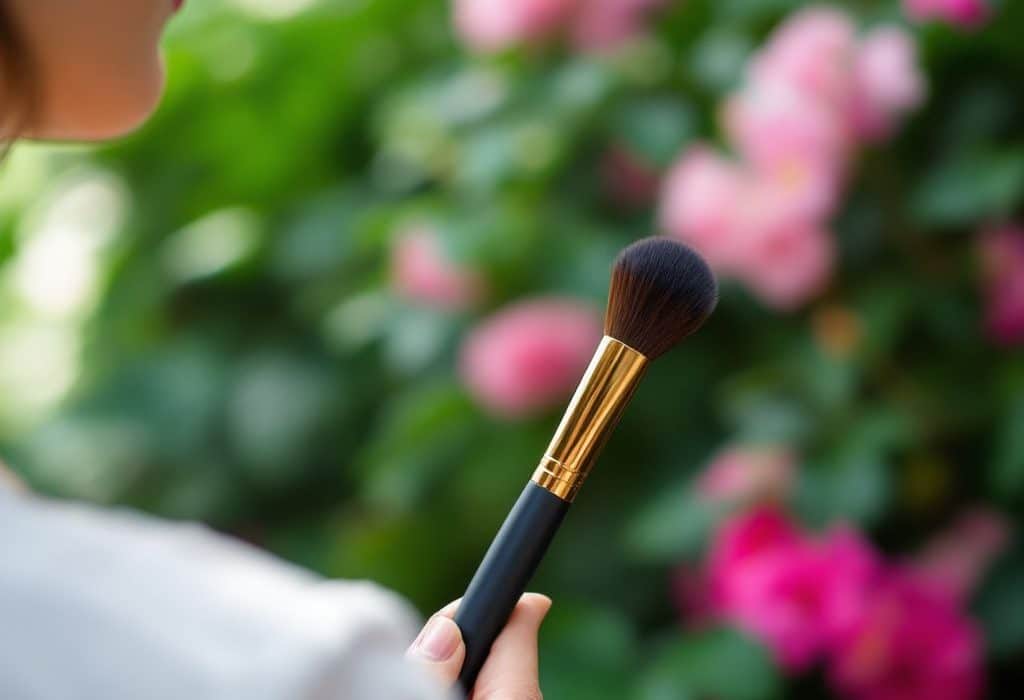The environmental impact of the beauty industry, specifically makeup, is profound and multifaceted, encompassing aspects such as resource extraction, production practices, packaging waste, and post-consumer waste. To navigate this landscape effectively, it’s crucial to integrate sustainable practices that prioritize both ethical considerations and environmental impact reduction. Here’s a deep dive into the important factors surrounding sustainable beauty.
**Sourcing of Ingredients**
One of the primary sustainability concerns in makeup is the sourcing of ingredients. Many conventional makeup products rely on ingredients that are cultivated using environmentally detrimental practices like excessive water use, pesticide application, and rainforest destruction. Conversely, sustainable beauty standards advocate for certified organic and non-toxic ingredients. Certifications like USDA Organic or Ecocert help ensure that the ingredients are sourced without harmful chemicals, promoting biodiversity and reducing pollution.
**Eco-Friendly Product Recommendations**
Several companies have set benchmarks in sustainable makeup. Brands like RMS Beauty and ILIA Beauty endeavor to offer products that are both luxurious and sustainable.

- RMS Beauty: This brand uses raw, food grade, organic ingredients without harming their beneficial properties. Products are packaged using recyclable and reusable materials, fulfilling high sustainability criteria.
- ILIA Beauty: Notably certified by Leaping Bunny for cruelty-free standards, ILIA Beauty melds safety, color performance, and sustainability by using organic botanicals, strict ingredient testing, and sustainable manufacturing processes.
**Sustainable Packaging**
Packaging is a major sustainability concern, contributing significantly to waste. Eco-friendly packaging alternatives, such as recycled, biodegradable, refillable, and FSC-certified materials, can substantially mitigate environmental impact. Kjaer Weis, for example, uses refillable metal compacts that reduce packaging waste significantly.

**Manufacturing Ethics and Certifications**
Sustainable beauty transcends sustainable ingredients and packaging—ethical manufacturing practices are also crucial. Supply chain transparency and labor rights, coupled with energy-efficient production processes, underscore ethical manufacturing. Certifications such as Made Safe, Cradle to Cradle, and Fair Trade offer assurance that brands uphold such practices.
- Axiology: Specializes in ethically sourced mineral raw materials and ensures labor rights across its supply chain while offering zero-waste, recyclable lip crayons in eco-friendly packaging.
**Addressing Common Misconceptions**

One prevalent misconception is that natural or organic automatically means sustainable. While these elements can contribute to sustainability, a product’s overall lifecycle, including production methods and post-use impact, determines its environmental footprint. For instance, a “natural” product could still involve deforestation or exploitative labor unless verified by credible eco-certifications.
Furthermore, “biodegradable” labels can be misleading without stringent definitions, leading consumers to believe all such products are harmless to the environment. True biodegradability under eco-friendly standards ensures complete breakdown without harmful residues.
**Conclusion**
Making conscious choices in sustainable beauty involves understanding the ripple effects of our purchases, from ingredient sourcing to disposal. By prioritizing brands that are certified by credible organizations, utilize eco-friendly packaging, and adhere to ethical practices, consumers can significantly reduce the makeup industry’s environmental footprint. Becoming informed empowers us to demand greater transparency and better practices, paving the way towards a truly sustainable beauty culture.
Frequently Asked Questions
What are the key considerations when sourcing makeup ingredients wholesale?
When sourcing makeup ingredients wholesale, it is crucial to ensure the quality of the raw materials, as this directly impacts the effectiveness and safety of the final products. Partnering with reputable suppliers, requesting samples to evaluate the ingredients’ quality, and maintaining open communication are essential. Additionally, bulk purchasing can offer significant cost savings and ensure consistency in product formulations[4].
Do I need FDA approval for the ingredients used in my makeup products?
The law does not require cosmetic products and ingredients, except for color additives, to be approved by the FDA before they go on the market. However, cosmetics must not be adulterated or misbranded and must be safe for consumers when used according to the labeling. You are legally responsible for ensuring your cosmetics are safe and properly labeled[5].
What types of equipment and materials do I need to make makeup products using wholesale ingredients?
To make makeup products using wholesale ingredients, you generally do not need special laboratory equipment. Simple kitchen utensils like measuring spoons and cups, a kitchen blender, and glass or plastic containers are sufficient. However, in some cases, special equipment like pH-indicators or molds may be necessary[1].
How can I ensure consistency in my makeup formulations when purchasing ingredients wholesale?
Ensuring consistency in makeup formulations can be achieved by bulk purchasing from reliable suppliers. This approach allows you to maintain a stable supply of ingredients, which helps in maintaining product quality and meeting market demands without interruptions. Consistent sourcing also helps in negotiating better pricing and reducing production costs[4].

